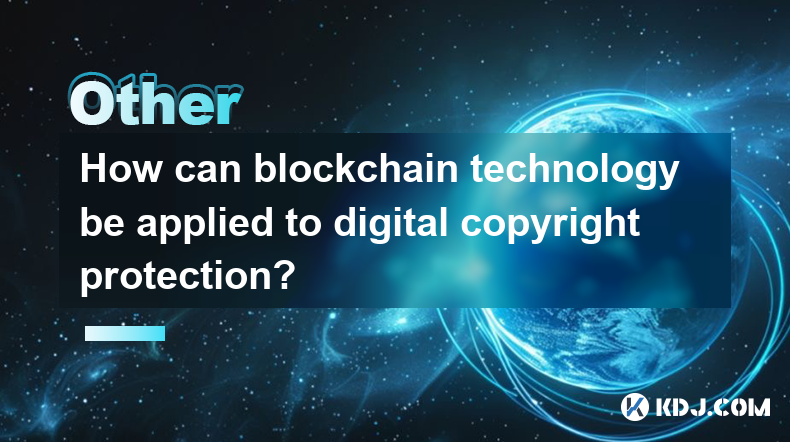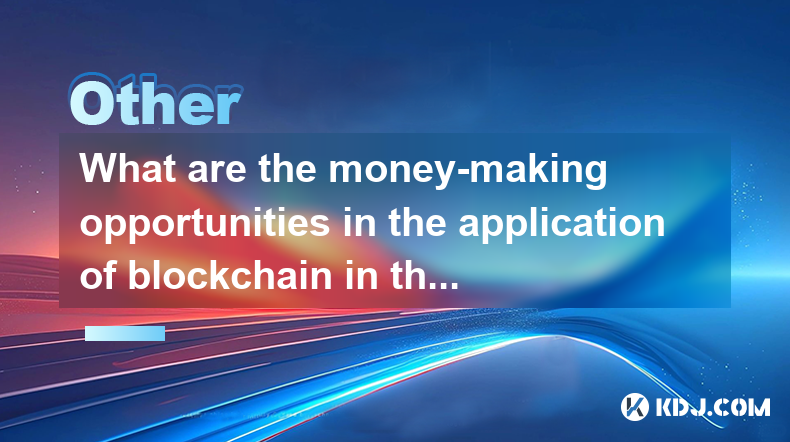-
 Bitcoin
Bitcoin $77,582.7508
-2.72% -
 Ethereum
Ethereum $1,484.8733
-4.90% -
 Tether USDt
Tether USDt $0.9991
-0.06% -
 XRP
XRP $1.8190
-6.84% -
 BNB
BNB $558.9330
-0.67% -
 USDC
USDC $0.9998
-0.06% -
 Solana
Solana $105.8173
-3.99% -
 Dogecoin
Dogecoin $0.1474
-4.02% -
 TRON
TRON $0.2294
-2.85% -
 Cardano
Cardano $0.5677
-7.00% -
 UNUS SED LEO
UNUS SED LEO $9.1640
1.91% -
 Toncoin
Toncoin $3.0205
-3.48% -
 Chainlink
Chainlink $11.3410
-3.03% -
 Avalanche
Avalanche $16.3752
-6.49% -
 Stellar
Stellar $0.2205
-7.38% -
 Shiba Inu
Shiba Inu $0.0...01104
-2.53% -
 Hedera
Hedera $0.1502
-8.41% -
 Sui
Sui $1.9322
-6.31% -
 MANTRA
MANTRA $6.1619
-1.24% -
 Bitcoin Cash
Bitcoin Cash $273.1447
-3.59% -
 Litecoin
Litecoin $71.3781
-2.06% -
 Dai
Dai $0.9999
-0.04% -
 Polkadot
Polkadot $3.4140
-6.57% -
 Ethena USDe
Ethena USDe $0.9986
-0.07% -
 Bitget Token
Bitget Token $4.0704
-2.58% -
 Hyperliquid
Hyperliquid $12.2616
1.62% -
 Pi
Pi $0.5705
-2.24% -
 Monero
Monero $196.1775
-4.56% -
 OKB
OKB $51.6798
-1.63% -
 Uniswap
Uniswap $4.8529
-6.54%
How can blockchain technology be applied to digital copyright protection?
Blockchain's immutable ledger offers enhanced digital copyright protection by automating registration, simplifying licensing, providing irrefutable proof of ownership, and increasing transparency, thereby reducing disputes and administrative overhead.
Mar 06, 2025 at 07:54 am

How Can Blockchain Technology Be Applied to Digital Copyright Protection?
Key Points:
- Immutable Record Keeping: Blockchain's immutable ledger provides a tamper-proof record of copyright ownership, significantly reducing disputes and enhancing trust.
- Automated Copyright Registration: Smart contracts can automate the registration process, making it faster, cheaper, and more efficient than traditional methods.
- Enhanced Proof of Ownership: Blockchain technology provides irrefutable proof of ownership, simplifying the process of demonstrating copyright infringement.
- Simplified Licensing and Royalty Distribution: Smart contracts can automate licensing agreements and royalty payments, streamlining the process and reducing administrative overhead.
- Increased Transparency and Security: The decentralized nature of blockchain enhances transparency and security, making it difficult for unauthorized individuals to alter or delete copyright information.
Applying Blockchain Technology to Digital Copyright Protection:
- Establishing a Decentralized Copyright Registry: A decentralized copyright registry built on a blockchain can serve as a secure and transparent platform for registering and managing digital copyrights. This registry would store crucial information such as the copyright owner's identity (potentially using cryptographic methods to maintain anonymity if desired), the date of creation, a unique identifier for the copyrighted work (e.g., a cryptographic hash of the digital asset), and the terms of use. The immutability of the blockchain prevents unauthorized alterations to this information, providing a robust and verifiable record of ownership. This differs from centralized registries which are susceptible to hacking, data corruption, and single points of failure. Furthermore, a decentralized registry avoids the bureaucratic hurdles and potential delays associated with traditional copyright registration offices. The distributed nature of the system ensures that the registry remains operational even if individual nodes fail, enhancing resilience and availability. The use of cryptographic hashing ensures that even minor changes to the copyrighted work are easily detectable, providing a reliable mechanism for verifying the integrity of the registered asset. Different blockchain platforms offer varying levels of scalability and transaction speed, impacting the efficiency of the registry. Therefore, selecting the appropriate platform is crucial for the effective implementation of this solution. Careful consideration must also be given to the legal framework governing the registry to ensure compliance with existing copyright laws and regulations. The legal recognition of blockchain-based copyright registrations varies across jurisdictions, and navigating this legal landscape is critical for the success of the system. Finally, user-friendliness and ease of access are crucial for widespread adoption, requiring intuitive interfaces and clear guidance for users unfamiliar with blockchain technology.
- Utilizing Smart Contracts for Automated Licensing and Royalty Distribution: Smart contracts, self-executing contracts with the terms of the agreement written directly into code, can revolutionize the licensing and royalty distribution process. Once a licensing agreement is written into a smart contract and deployed on the blockchain, it automatically executes when predefined conditions are met. For example, when a user purchases a license to use a copyrighted work, the smart contract automatically transfers the license and processes the payment to the copyright holder. This eliminates the need for intermediaries, reducing transaction costs and streamlining the entire process. Similarly, royalty payments can be automatically distributed to copyright holders based on usage metrics recorded on the blockchain. This automation reduces disputes and ensures timely payments. Smart contracts can also incorporate complex licensing terms, such as tiered pricing based on usage levels or geographic restrictions. The transparency and immutability of the blockchain provide a clear audit trail of all transactions, enhancing trust and accountability. However, the complexity of writing and deploying secure smart contracts requires specialized expertise. Moreover, the legal enforceability of smart contracts varies across jurisdictions, and careful consideration is needed to ensure compliance with applicable laws. The potential for bugs or vulnerabilities in smart contract code poses a significant risk, requiring rigorous testing and auditing before deployment. Finally, the scalability of the blockchain platform used to host the smart contracts is crucial for handling a large volume of transactions efficiently.
- Implementing Blockchain-Based Digital Rights Management (DRM): Blockchain technology can enhance traditional DRM systems by providing a more secure and transparent method for controlling access to copyrighted digital assets. Instead of relying on centralized servers that are vulnerable to hacking, blockchain-based DRM systems can use cryptographic techniques to grant and revoke access rights to digital assets. These access rights are recorded on the blockchain, providing an immutable record of who has access to the asset and under what conditions. This enhances security and reduces the risk of unauthorized access or distribution. Furthermore, blockchain-based DRM systems can allow for granular control over access rights, allowing copyright holders to specify different levels of access for different users. For example, a copyright holder might grant one user the right to view a digital asset, while granting another user the right to modify and redistribute it. This level of control is difficult to achieve with traditional DRM systems. However, the implementation of blockchain-based DRM requires careful consideration of scalability, performance, and user experience. The computational overhead associated with cryptographic operations can impact the efficiency of the system. The integration with existing DRM systems can also be complex and require significant development effort. Finally, the legal implications of using blockchain-based DRM need to be carefully considered to ensure compliance with applicable laws and regulations.
- Leveraging Blockchain for Proof of Ownership and Copyright Infringement Detection: Blockchain technology can provide irrefutable proof of ownership of digital assets, simplifying the process of demonstrating copyright infringement. By recording the creation date and other relevant metadata of a digital asset on the blockchain, copyright holders can establish a verifiable record of ownership. This record can be used as evidence in court to demonstrate ownership and prove infringement. Furthermore, blockchain technology can be used to automate the process of detecting copyright infringement. By comparing the cryptographic hashes of digital assets on the blockchain with those found online, copyright holders can quickly identify instances of unauthorized copying or distribution. This automated detection system can significantly reduce the time and resources required to identify and address copyright infringement. However, the effectiveness of this approach depends on the completeness and accuracy of the data stored on the blockchain. The process of identifying and tracking all instances of copyright infringement can be computationally intensive and resource-consuming. The legal admissibility of blockchain-based evidence varies across jurisdictions and needs careful consideration. Finally, the cost of implementing and maintaining a blockchain-based infringement detection system can be significant.
- Building a Decentralized Marketplace for Digital Assets: A decentralized marketplace for digital assets built on a blockchain can provide a secure and transparent platform for buying, selling, and licensing copyrighted works. This marketplace would leverage smart contracts to automate the transaction process, ensuring secure and timely payments and preventing fraud. The immutability of the blockchain would provide a verifiable record of all transactions, enhancing trust and accountability. The decentralized nature of the marketplace would eliminate the need for intermediaries, reducing transaction costs and empowering creators. The marketplace could also incorporate features such as royalty distribution mechanisms, allowing creators to receive automatic payments based on the usage of their works. However, the development and maintenance of a decentralized marketplace requires significant technical expertise and resources. The scalability of the underlying blockchain platform is crucial for handling a large volume of transactions. The legal framework governing the marketplace needs to be carefully considered to ensure compliance with applicable laws and regulations. Finally, the user experience is critical for the success of the marketplace, requiring a user-friendly interface and clear guidance for users unfamiliar with blockchain technology.
FAQs:
Q: What are the main benefits of using blockchain for digital copyright protection?
A: The main benefits include creating an immutable record of ownership, automating copyright registration and licensing, providing enhanced proof of ownership, simplifying royalty distribution, and increasing transparency and security. This reduces disputes, streamlines processes, and strengthens the rights of creators.
Q: Are there any limitations or challenges associated with using blockchain for copyright protection?
A: Yes, challenges include the need for technical expertise to implement and manage blockchain systems, the scalability of blockchain platforms, the legal implications and enforceability of smart contracts and blockchain-based evidence in different jurisdictions, and the potential for smart contract vulnerabilities. Also, widespread adoption requires user-friendly interfaces and education.
Q: How does blockchain technology improve upon existing copyright protection methods?
A: Blockchain offers improvements over traditional methods by providing a more secure, transparent, and tamper-proof record of ownership, automating processes that are currently manual and prone to delays, and offering stronger evidence in copyright infringement cases. Existing systems often rely on centralized databases vulnerable to hacking and manipulation.
Q: What are the different types of blockchain platforms that can be used for digital copyright protection?
A: Various platforms, each with its strengths and weaknesses in terms of scalability, transaction speed, and cost, could be used. The choice depends on the specific needs of the application. Examples include Ethereum, Hyperledger Fabric, and other permissioned and permissionless blockchains.
Q: What is the role of smart contracts in blockchain-based copyright protection?
A: Smart contracts automate licensing agreements, royalty payments, and other aspects of copyright management. They enforce the terms of agreements automatically, reducing the need for intermediaries and improving efficiency and transparency.
Q: How can blockchain technology help in detecting copyright infringement?
A: By storing cryptographic hashes of copyrighted works on the blockchain, it's possible to compare these hashes with those of works found online, automatically detecting potential instances of infringement. This speeds up the identification process.
Q: What are the legal considerations involved in using blockchain for copyright protection?
A: The legal recognition of blockchain-based copyright registrations and the enforceability of smart contracts vary across jurisdictions. Careful legal counsel is necessary to ensure compliance with existing copyright laws and regulations. The admissibility of blockchain evidence in court also needs to be considered.
Q: What is the future of blockchain technology in digital copyright protection?
A: The future likely involves greater integration with existing systems, improved scalability and user experience, and the development of more sophisticated smart contracts capable of handling complex licensing agreements. Wider adoption and legal clarity will be key factors.
Disclaimer:info@kdj.com
The information provided is not trading advice. kdj.com does not assume any responsibility for any investments made based on the information provided in this article. Cryptocurrencies are highly volatile and it is highly recommended that you invest with caution after thorough research!
If you believe that the content used on this website infringes your copyright, please contact us immediately (info@kdj.com) and we will delete it promptly.
- Hedera (HBAR) Price Forms Bullish Falling Wedge, Targeting $0.30 Breakout
- 2025-04-09 21:10:13
- HBAR Mess Has Set the Stage for Something Explosive
- 2025-04-09 21:10:13
- The Best Meme Coin to Buy Now Might Not Be One You Recognize
- 2025-04-09 21:05:12
- Royal Canadian Mint Issues $1 Circulation Coin Commemorating the 150th Anniversary of the Supreme Court of Canada
- 2025-04-09 21:05:12
- Could bitcoin withstand the flames spewed by Donald Trump
- 2025-04-09 21:00:12
- Mastercard and Ripple (XRP) Rumored Partnership Doesn't Go as Deep as Many Think
- 2025-04-09 21:00:12
Related knowledge

Is the ranking of Chinese blockchain apps real and reliable?
Apr 04,2025 at 09:01pm
The ranking of Chinese blockchain apps has become a topic of interest for many in the cryptocurrency community, as it provides insights into the popularity and adoption of blockchain technology within China. However, the reliability and authenticity of these rankings are often questioned. This article aims to delve into the factors that influence these ...

What are the future development trends of blockchain game development?
Apr 03,2025 at 05:00am
Blockchain technology has revolutionized various industries, and gaming is no exception. As we look to the future, several trends are set to shape the development of blockchain games. These trends not only promise to enhance the gaming experience but also to integrate blockchain technology more seamlessly into the gaming ecosystem. Let's explore these t...

What are the high-return opportunities for blockchain investments?
Apr 05,2025 at 02:35pm
Blockchain technology has revolutionized the financial world, offering numerous high-return investment opportunities. These opportunities span various sectors within the cryptocurrency ecosystem, including cryptocurrencies, decentralized finance (DeFi), non-fungible tokens (NFTs), and blockchain startups. Each of these areas presents unique risks and re...

What are the maintenance costs of blockchain system development?
Apr 03,2025 at 06:07pm
The maintenance costs of blockchain system development are multifaceted and depend on various factors. These costs can include technical maintenance, security updates, infrastructure expenses, and personnel costs. Understanding these elements is crucial for anyone planning to develop or maintain a blockchain system. Technical MaintenanceTechnical mainte...

What are the money-making models of blockchain games?
Apr 04,2025 at 02:00pm
Blockchain games have emerged as a revolutionary way for players to earn real money while enjoying their favorite pastime. These games leverage the power of blockchain technology to create unique money-making models that benefit both the players and the developers. In this article, we will explore the various money-making models of blockchain games and ...

What are the money-making opportunities in the application of blockchain in the field of Internet of Things?
Apr 05,2025 at 10:35pm
The integration of blockchain technology with the Internet of Things (IoT) presents numerous money-making opportunities. Blockchain, with its decentralized and secure nature, can revolutionize how IoT devices interact, manage data, and conduct transactions. This article will explore various avenues where entrepreneurs, developers, and investors can capi...

Is the ranking of Chinese blockchain apps real and reliable?
Apr 04,2025 at 09:01pm
The ranking of Chinese blockchain apps has become a topic of interest for many in the cryptocurrency community, as it provides insights into the popularity and adoption of blockchain technology within China. However, the reliability and authenticity of these rankings are often questioned. This article aims to delve into the factors that influence these ...

What are the future development trends of blockchain game development?
Apr 03,2025 at 05:00am
Blockchain technology has revolutionized various industries, and gaming is no exception. As we look to the future, several trends are set to shape the development of blockchain games. These trends not only promise to enhance the gaming experience but also to integrate blockchain technology more seamlessly into the gaming ecosystem. Let's explore these t...

What are the high-return opportunities for blockchain investments?
Apr 05,2025 at 02:35pm
Blockchain technology has revolutionized the financial world, offering numerous high-return investment opportunities. These opportunities span various sectors within the cryptocurrency ecosystem, including cryptocurrencies, decentralized finance (DeFi), non-fungible tokens (NFTs), and blockchain startups. Each of these areas presents unique risks and re...

What are the maintenance costs of blockchain system development?
Apr 03,2025 at 06:07pm
The maintenance costs of blockchain system development are multifaceted and depend on various factors. These costs can include technical maintenance, security updates, infrastructure expenses, and personnel costs. Understanding these elements is crucial for anyone planning to develop or maintain a blockchain system. Technical MaintenanceTechnical mainte...

What are the money-making models of blockchain games?
Apr 04,2025 at 02:00pm
Blockchain games have emerged as a revolutionary way for players to earn real money while enjoying their favorite pastime. These games leverage the power of blockchain technology to create unique money-making models that benefit both the players and the developers. In this article, we will explore the various money-making models of blockchain games and ...

What are the money-making opportunities in the application of blockchain in the field of Internet of Things?
Apr 05,2025 at 10:35pm
The integration of blockchain technology with the Internet of Things (IoT) presents numerous money-making opportunities. Blockchain, with its decentralized and secure nature, can revolutionize how IoT devices interact, manage data, and conduct transactions. This article will explore various avenues where entrepreneurs, developers, and investors can capi...
See all articles























































































